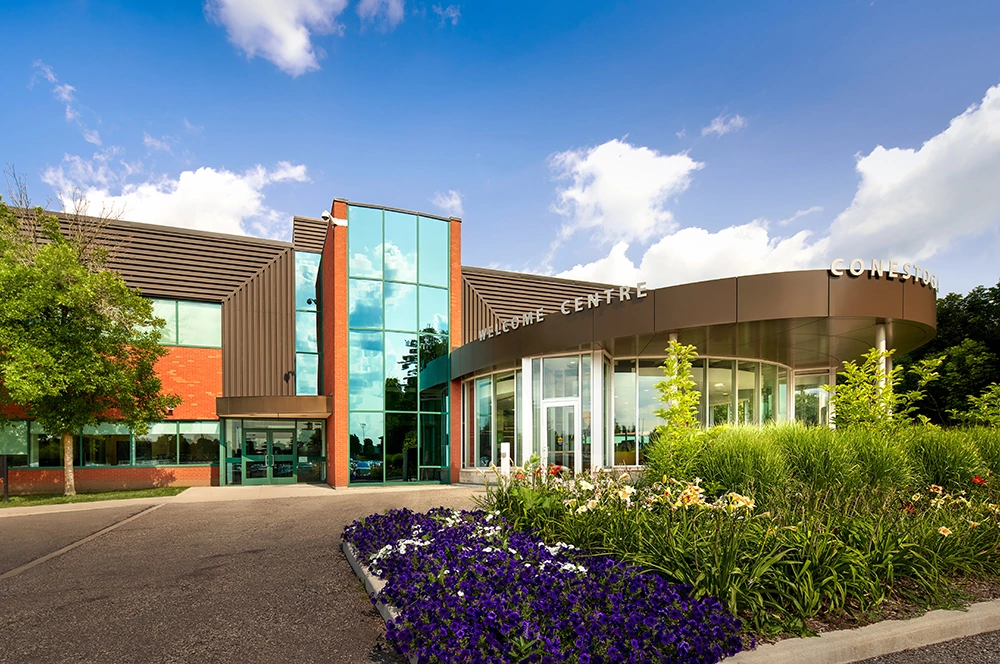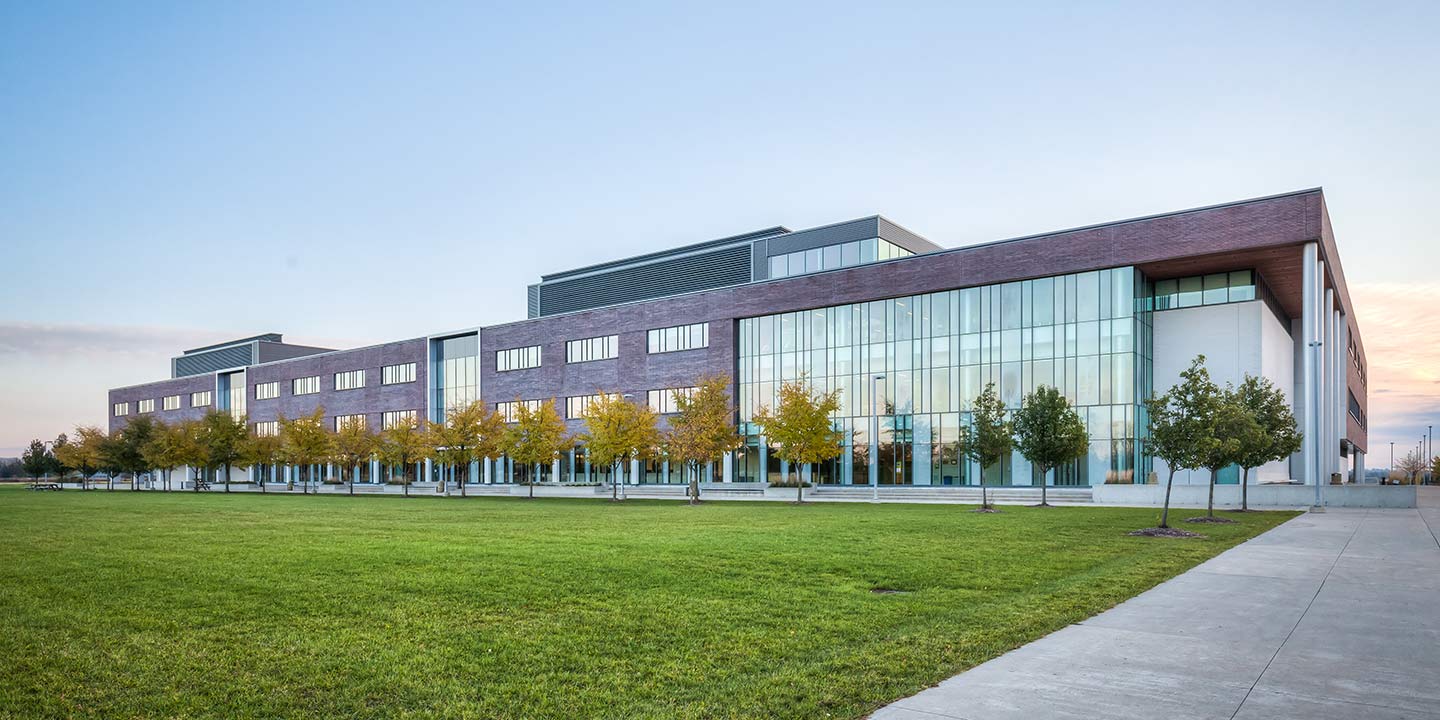Courses
Level 1
Course details
Chemistry
CHEM72005
Conestoga 101
CON0101
Project 1A - Building Science
DSGN71140
Foundation Module (Building Systems Engineering)
FND71080
Calculus for Engineering
MATH71561
Building Materials and Processes
MATR71030
Physics - Mechanical
PHYS71095
Introduction to Natural Sciences
SCIE71000
Group Dynamics
SOC71500
Level 2
Course details
Heating and Cooling Load Calculations and Psychrometrics
BES71000
Project 1B - Building Envelope and System Design
DSGN71150
Scientific and Technical Communications
ENGL71200
Linear Algebra
MATH71000
Statics and Strength of Materials
MATR71025
Physics
PHYS71020
Level 3
Course details
Fire and Smoke Control
BES72000
Co-op and Career Preparation
CEPR71050
Project 2A - Commercial Building
DSGN72250
Electrical and Electronic Foundations
ELCN71025
Advanced Calculus
MATH71570
Strength of Materials II
MATR72050
Project Management, Methods and Tools
MGMT72120
Level 4
Course details
Project 2B - Duct, Piping and Plumbing Systems
DSGN72260
Differential Equations
MATH73010
Numerical Methods
MATH73210
Fluid Mechanics
MECH72125
Dynamics
MECH72130
Thermodynamics
MECH73115
Programming Fundamentals
PROG72355
Level 5
Course details
Co-op Work Term 1 (BEng-Building Systems Engineering)
COOP72030
Level 6
Course details
Co-op Work Term 2 (BEng-Building Systems Engineering)
COOP73220
Level 7
Course details
Electric Motors and Drives
CNTR73025
Elements of Design and Vertical Movement
DSGN73070
Project 3A - Electrical and Lighting
DSGN73080
Heat Transfer and Refrigeration
MECH73000
Electives: Program Option
Student must pass 1 Course(s), selected in the Student Portal from available course options
VIEW PROGRAM OPTION ELECTIVES
Please note that all courses may not be offered in all semesters. Go to your student portal for full timetabling details under "My Courses".
Microprocessors and Embedded Systems
CNTR73140
Artificial Intelligence
CNTR73150
Finite Element Analysis
DSGN74045
Digital Signal Processing
ELCN73010
Advanced Technical Elective I
ENGG74020
Advanced Technical Elective II
ENGG74030
Value Engineering and Life Cycle Costing
ENGG74100
Advanced Manufacturing Processes
MANU73020
Composite Materials
MATR73000
Operations Management
OPER73240
Introduction to Welding
WELD73295
Level 8
Course details
Control Systems
CNTR73015
Sensors and Instrumentation
CNTR73170
Project 3B - Building Control Systems
DSGN73090
Energy Conversion and Renewable Energy
ENGG73000
Commissioning, Operations and Data Analytics
INFO73000
Probability and Statistics
MATH74005
Level 9
Course details
Co-op Work Term 3 (BEng - Building Systems Engineering
COOP74120
Level 10
Course details
HVAC Pressure Piping Design
DSGN74080
Capstone Project A
DSGN74090
Economics for Engineers
ECON74000
Law, Ethics and Professional Practice
LAW74600
Electives: Interdisciplinary
Student must pass 1 Course(s), selected in the Student Portal from available course options
Interdisciplinary Elective Details
Electives: Program Option
Student must pass 1 Course(s), selected in the Student Portal from available course options
VIEW PROGRAM OPTION ELECTIVES
Please note that all courses may not be offered in all semesters. Go to your student portal for full timetabling details under "My Courses".
Microprocessors and Embedded Systems
CNTR73140
Artificial Intelligence
CNTR73150
Finite Element Analysis
DSGN74045
Digital Signal Processing
ELCN73010
Advanced Technical Elective I
ENGG74020
Advanced Technical Elective II
ENGG74030
Value Engineering and Life Cycle Costing
ENGG74100
Advanced Manufacturing Processes
MANU73020
Composite Materials
MATR73000
Operations Management
OPER73240
Introduction to Welding
WELD73295
Level 11
Course details
Financial and Managerial Accounting
ACCT74100
Capstone Project B
DSGN74100
Energy Management, Planning and Modelling
ENGG74010
Fluid Dynamics and Turbo Machinery
MECH74000
Topics in Management
MGMT74115
Science, Technology and Society
SOC71045
Electives: Interdisciplinary
Student must pass 1 Course(s), selected in the Student Portal from available course options
Interdisciplinary Elective Details
Program outcomes
Apply university level mathematics, natural sciences, and engineering fundamentals to solve engineering problems involving building systems.
Apply critical thinking to identify, formulate, analyze, and solve complex engineering problems to reach substantiated conclusions that are supported by appropriate research.
Conduct investigations relating to natural science, mechanical, and building systems using methods that incorporate appropriate research and experiments, analysis and interpretation of data, and synthesis of information to reach substantiated conclusions.
Creatively transform ideas and concepts into robust engineering solutions that meet stakeholder/occupant requirements specifically considering health and safety risks, applicable standards and codes, and economic, environmental, cultural and societal constraints.
Design, model, analyze, simulate, implement, and integrate building systems using concurrent design principles to realize solutions that conform to design specifications and stakeholder/occupant requirements ensuring compatibility with current industry equipment and trends.
Create, select, adapt, and develop appropriate techniques, resources, and modern engineering tools for the design, analysis, simulation, evaluation, and implementation of building systems, and apply them appropriately giving consideration to their associated limitations.
Apply concepts of human relations and organizational behaviour to establish and maintain effective relationships using leadership, interpersonal, group dynamics and conflict resolution skills across diverse teams and groups.
Communicate complex engineering concepts within the profession and with society at large using oral, graphic and print media methods to produce effective reports, design documentation, and instructions.
Interpret and adhere to professional, ethical, and legal codes of practice in compliance with industrial, labour and environmental legislation to protect the public and public interest.
Apply the concepts of sustainability, environmental stewardship, and an awareness of societal impacts, including an appreciation for the interactions and uncertainties involved, to design and development activities.
Apply professional ethics, accountability and equity to demonstrate value, and respect of diversity across global, and societal contexts.
Integrate engineering skills and knowledge with current business practices to manage risk and contractual obligations, and provide economically sound engineering solutions.
Effectively manage enterprise resources through planning, organizing, staffing, directing, motivating, leading, monitoring and controlling.
Identify and address individual needs for continuing education and professional development to maintain technical and professional competence and to contribute to the advancement of knowledge
Show less











